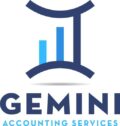With the ever-changing tax landscape, Philadelphia real estate investors and business owners need to stay alert to fresh opportunities and new regulations. As 2025 approaches, several advanced tax strategies have taken center stage—particularly for those looking to maximize returns and minimize liabilities in a dynamic market. Below are some of the most effective approaches, drawn from industry insights and ongoing trends shaping the world of real estate taxation.
1. Optimize Your Business Entity
Choosing the right business entity is a foundational tax strategy that can lead to substantial savings. While many real estate investors default to Limited Liability Companies (LLCs) for asset protection and pass-through tax benefits, other structures such as S Corporations and partnerships can also be advantageous.
- LLCs: Allow flexible management and limit personal liability, making them ideal for buy-and-hold strategies.
- S Corporations: Can reduce self-employment taxes, which is particularly beneficial for active investors flipping properties or earning significant rental income.
- Partnerships: Useful for joint ventures, though it’s essential to outline profit splits and expense-sharing clearly to avoid potential tax disputes later.
2. Leverage Cost Segregation
In older cities like Philadelphia, where properties often feature a mix of historical charm and modern upgrades, cost segregation can be a powerful tool. By identifying and classifying components of a building—such as flooring, fixtures, and appliances—investors can accelerate depreciation schedules. This boosts immediate deductions, lowering taxable income and improving cash flow in the short term. While the upfront analysis requires a qualified professional, the long-term savings often justify the cost.
3. Consider 1031 Exchanges for Growth
The 1031 exchange remains a cornerstone of real estate tax planning, enabling investors to defer capital gains taxes by reinvesting proceeds from the sale of one property into another “like-kind” asset. When executed properly, 1031 exchanges help investors maintain and grow their capital base without the immediate tax hit. Philadelphia’s developing neighborhoods offer ample opportunities for strategic reinvestment, allowing you to target emerging hotspots and scale up your portfolio more rapidly.
4. Tap Into Bonus Depreciation
While the rules around bonus depreciation may shift over time, savvy investors should monitor any upcoming phase-outs or extensions. Bonus depreciation lets you immediately deduct a significant portion of certain property improvements or equipment costs, rather than spreading out the deductions over many years. If you’re planning major renovations, expansions, or equipment purchases, time these actions carefully to secure the most substantial tax benefits.
5. Explore Local Incentives and Credits
Philadelphia imposes unique taxes, such as the Business Income & Receipts Tax (BIRT), which can catch newcomers off guard. Yet, the city also offers local credits and incentives, especially for revitalizing older or underdeveloped properties. Business owners who align their projects with local redevelopment goals—such as mixed-use development or affordable housing—may qualify for property tax abatements, reduced permit fees, or other savings that can significantly enhance profitability.
6. Reassess Your Long-Term Strategy
Finally, a successful 2025 tax strategy goes beyond any single deduction or credit. It involves periodic reassessments of your portfolio, market conditions, and personal financial goals. Are you leaning toward a buy-and-hold approach, or flipping properties for quicker returns? Do you plan to reinvest profits into new acquisitions, or focus on stabilizing your existing assets? Each choice carries distinct tax implications.
Staying proactive in your planning ensures you respond nimbly to regulatory shifts—protecting both your portfolio and your bottom line. A knowledgeable tax professional can help you maintain compliance, capitalize on opportunities, and pivot when the market calls for a new approach.
Position Yourself for Success
Philadelphia’s real estate market is vibrant, with new investors entering the scene and established players expanding portfolios at record speed. By employing these 2025 tax strategies—ranging from entity selection and cost segregation to bonus depreciation and local incentives—you can sharpen your competitive edge while preserving more of your gains.
Ready to refine your approach?
Working with an accounting firm that specializes in real estate taxation can offer the tailored guidance you need to thrive in Philadelphia’s evolving market. From strategic acquisitions and property upgrades to local tax compliance, expert advice ensures you take every advantage available under current regulations.

